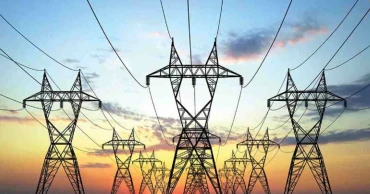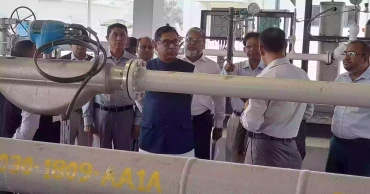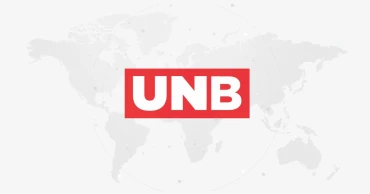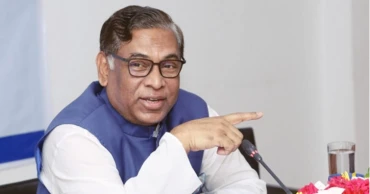diesel
Govt to import rice, fertiliser, diesel
The government will import rice, fertiliser and diesel and procure sugar and lentil from local suppliers to meet the domestic demands.
Advisors’ Council Committee on Government Purchase (ACCGP) in a meeting on Tuesday, with Finance Adviser Dr Salehuddin Ahmed in the chair, approved a number of proposals in this regard.
Following the meeting, the Finance Adviser said the committee approved the proposals in order to ensure steady flow of supply of essential commodities like rice, sugar, lentil, fertiliser and fuels.
"We'll try to ensure smooth flow of supply in the market during the Ramadan… Even until the end of the coming Ramadan. Not only the supply, there needs to be strict monitoring as well,”he told reporters.
Bangladesh Petroleum Corporation (BPC), under the Energy and Mineral Resources Division, will import 130,000 MT of diesel from India.
Indian Numaligarh Refinery Limited will supply the bulk diesel at a cost of Tk 1137.96 crore.
As per the proposals approved by the ACCGP, the Food Directorate, under the Ministry of Food, will import 100,000 Metric Tons of white rice (Atop Rice) from Vietnam on a G-to-G basis.
Read: Bangladesh to import 100,000mt of rice from India and Pakistan
Vietnam Southern Food Corporation (VINAFOOD II) will supply the bulk rice at a cost of Tk 578.58 crore, with per MT at $474.25.
Bangladesh Agriculture Development Corporation (BADC), under the Ministry of Agriculture, will import 30,000 MT of TSP fertiliser from OCP Nutricrops of Morocco under a state-level agreement at a cost of Tk 161.04 crore, with per MT at $440.
Trading Corporation of Bangladesh (TCB), under the Commerce Ministry, will procure 10,000 MT of sugar through a local open tender.
City Sugar Industries Ltd will supply the bulk sugar at a cost of Tk 115.42 crore with per kg at Tk 115.42.
TCB will also procure 10,000 MT of lentil through local open tender.
Read more: Government to import rice, LNG to meet domestic demand
Sheikh Agro Food Industries will supply the bulk lentil at a cost of Tk 98.45 crore with per kg at Tk 98.45.
1 year ago
Diesel, kerosene prices reduced by Tk 1 per litre with effect from January 1
The prices of diesel and kerosene have been reduced by Tk 1 per litre with effect from January 1.
According to new prices, set by the Energy and Mineral Resources Division for the month of January, per litre of diesel and kerosene will be sold at Tk 104 instead of earlier price of Tk 105 while prices of octane and petrol will remain unchanged at Tk 125 and Tk 121 per litre respectively.
Read: Diesel, kerosene prices cut by 50p for November
The new prices have been set under the automated pricing formula in light of the adjustment of prices in the global market, said the Energy and Mineral Resources of the Ministry of Power, Energy and Mineral Resources.
1 year ago
Diesel, kerosene prices cut by 50p for November
The government has reduced the retail prices of diesel and kerosene by Tk 0.50 to Tk 105 per litre from Tk 105.50 for the month of November while the prices of octane and petrol were remained unchanged at Tk 125 and 121 per litre respectively.
A press release of the Ministry of Power, Energy and Mineral Resources informed this, saying that this price adjustment was done under an automated formula in alignment with the fuel prices in the global market in order to ensure an economic price for the retail consumers with effect from November 1.
The last Awami League government introduced the automated fuel pricing system in March 2023 in order to keep a coordination with global market price as per a suggestion of the international Monetary Fund (IMF).
1 year ago
Govt decreases price of petroleum fuels with effect from Sept 1
Bangladesh's interim government has decreased the prices of petroleum fuels at the retail level with effect from September 1.
As per a gazette notification issued by the Energy and Mineral Resources Division on Saturday, the price of diesel and kerosine at the consumer level will be Tk 105.50 per litre, down by Tk 1.25, from the previous price of Tk 106.75.
Price of petrol will be decreased by Tk 6 to Tk 121 per litre, from the previous price of Tk 127.
Read more: Govt's executive authority to raise power and gas prices cancelled through ordinance
Price of octane will also be decreased by Tk 6 to 125 per litre, from the previous price of Tk 131 per litre.
The new prices of petroleum fuels have been set in continuation of every month’s adjustment process under an automatic pricing formula in line with the global market price, said the Energy and Mineral Resources Division.
1 year ago
IPPs call for uniform import duty on primary fuels
Removal of discrepancies in the import duties imposed on primary fuels, which are used as inputs in power generation, can reduce the government’s subsidies in the power and energy sector.
The notion is being put forward by the private power producers of the country, also known as IPPs (independent power producers).
They are claiming that the discriminatory import taxes on primary fuels - furnace oil (diesel), coal, and gas (LNG) - ultimately favours the coal-fired power plants that projects the government’s biases towards ‘the dirtiest fuel’.
Currently there is a 5 percent duty on the import of coal, which rises to 34 percent on furnace oil, aka heavy fuel oil (HFO), and 22 percent on gas.
Read more: Ilisha-1 country’s 29th gas field: Nasrul Hamid
As a result, the price per MMBtu (metric million British Thermal Unit) of coal comes to Tk 10-11 and when power is generated from coal, it costs Tk 12-13. After adding 5 percent import duty, the cost of electricity from coal-fired power plants becomes Tk 13-14.
On the other hand, the price per MMBtu of HFO comes to Tk 11-12 and the power generation from the HFO costs Tk 11-12 due to its higher heat value. But when the 34 percent import duty on HFO is added, its power generation cost becomes Tk 15-16 per unit.
In the same way, the cost per MMBtu of imported gas is Tk 11-12 and its power generation cost becomes 10-11 due to its higher heat value. But after adding the import duty of 22 percent, the per unit electricity generation cost from gas-fired plants goes up to 13-14 per unit.
“If the discrepancies are removed from duty regime, and import duty on all fuels is made uniform at 22 percent, the production cost of electricity from diesel-fired plants will be lower than that of coal-fired power plants,” said Imran Karim, former president of Bangladesh Independent Power Producers Association (BIPPA), the trade body representing the interests of private power producers.
Read more: Many big industries using illegal gas connections: Nasrul Hamid
Karim, also the vice chairman of Confidence Group, a leading firm in private power generation, said the duty should be uniform considering the government’s commitment to support cleaner fuels - coal being the original dirty fuel. Furnace oil of course is no better.
“The government will receive more revenue from imported fuels, if the duty on all fuels are equalised,” he added.
According to the Power, Energy and Mineral Resources Ministry’s estimate, in the current fiscal 2022-23, the power and energy sector will require over Tk 23,000 in subsidies to cover its losses.
Of this, the power sector will require Tk 18,000 crore while around Tk 6000 crore would go on primary fuels.
Read more: New PSC: Petrobangla awaits final nods to invite int’l bidding for offshore blocks
Earlier, the loss in the sector was estimated much higher at over Tk 70,000 crore due to the excessive price hike of gas, coal and petroleum fuel following the war in Ukraine that began in February 2022.
But after the enhancement of fuel prices on the domestic market by more than 40 percent pn average and power tariff by more than 15 percent, the losses came down and subsequently the requirement for subsidy was also reduced to around Tk 23,000 crore, said officials at the Ministry of Power, Energy and Mineral Resources.
Private power producers claim that if the import duty on coal and furnace oil were made the same as that on gas, i.e. 22 percent, it would reduce overall costs and thus reduce the subsidy as well.
“Because, the power generation by furnace oil-based plants will automatically go down and it will ultimately have an impact on the overall tariff structure in the power sector by seeping through to both the wholesale and retail levels,” said an IPP plant operator.
Read more: Petrobangla initiates move to end foreign company’s monopoly in pre-paid gas metering system
Power Cell director general Mohammad Hossain said that both coal and furnace oil are dirty fuels, so by the IPPs’ logic, the import duty on these two fuels should be higher than on gas - not uniform.
“The import duty on coal and HFO should be equal and import duty on gas could be comparatively lower as it is the cleanest of the three,” he said.
2 years ago
Newly-built 'Indo-Bangla Friendship Pipeline' ready for inauguration
The newly built 130-km Bangladesh-India Friendship Pipeline for carrying diesel or petroleum is ready for inauguration.
According to official sources, Bangladesh Prime Minister Sheikh Hasina and her Indian counterpart Prime Minister Narendra Modi are scheduled to formally inaugurate the 131.57-km cross-border pipeline through video conferencing on March 18.
Named 'Indo-Bangla Friendship Pipeline', some 126.57-km of the pipeline lies in Bangladesh while the remaining 5-km was installed in India.
“All the necessary works of the pipeline project were completed and it’s now ready for inauguration,” ABM Azad, chairman of Bangladesh Petroleum Corporation (BPC), told UNB.
The BPC, the state marketing agency of petroleum fuel under the Energy and Mineral Resources Division, has been implementing the project under a 15-year government’s deal with India to annually import 250,000 tonnes to 400,000 tonnes of diesel from the neighbouring country through the cross-border pipeline.
Also Read: India-Bangladesh ‘friendship’ pipeline in Dinajpur to ensure energy security: Nasrul Hamid
The deal signed was on the basis of an unsolicited offer in 2017 following the approval of the Cabinet Economic Affairs Committee on August 23.
Bangladesh annually needs to import 6.6 million MT-7.7 million MT of petroleum to meet its demand.
According to official documents seen by UNB, the whole consignment of petroleum will come through the cross-border pipeline from India's Numaligarh refinery, located in Golaghat in north-eastern Indian state of Assam, while Bangladesh will receive it at Parbatipur petroleum fuel depot in north-western district of Dinajpur.
Official sources said though most part of the proposed pipeline is to be laid in the Bangladesh part, the Indian government has provided about Rs 303 crore as a loan under Indian line of credit (LOC) to build the Bangladesh portion.
Bangladesh will operate the pipeline in its part while India will operate the pipeline in its portion.
Officials said Dhaka had to first sign a 'Sales & Purchase Agreement' (SPA) to receive New Delhi’s financial support as a pre-condition.
The documents show that the 'premium' or transportation cost of the petroleum was fixed at $5.5 per barrel of diesel and the price of petroleum will be fixed on the basis of price on the international oil market.
The officials said when such a deal was signed Bangladesh was spending $4.4 per barrel to import diesel from overseas through vessels.
The documents also reveal that Bangladesh will annually import 250,000 metric tonnes in the first three years, 300,000 mt annually in the 4th to 6th years, 350,000 mt annually in the 7th to 10th years and 400,000 mt annually from the 11th to 15th years.
Currently, Bangladesh has been importing 22,000 MT of diesel per month through railway wagons.
BPC chairman ABM Azad said Bangladesh will benefit from such a pipeline in multiple ways and the deal could be extended for a further period of time.
He said the premium is cheaper compared with import cost from overseas as Bangladesh has to spend $12 per barrel as premium to import diesel.
He said that such petroleum imports from India through cross-border pipelines will help create a stock of petroleum in the northern region to meet the growing demands in that part of the country.
Recently, State Minister for Power, Energy and Mineral Resources Nasrul Hamid visited the pipeline project and appreciated the officials for completing it ahead of schedule.
He said this pipeline will help increase fuel supply by 29,000 MT in the 16 districts of the country’s northern region.
2 years ago
Freight train carrying diesel derails in Ctg, 40,000 litres spill into nearby canal
A freight train carrying diesel derailed in Chattogram’s Halishahar area and around 40,000 litres spilled from three wagons into a nearby canal.
The derailment happened around 6pm when the train was entering Chittagong Goods Port Yard (CGPY) depot after loading diesel from depots of Padma, Megha and Jamuna in Patenga area.
Abdul Malek, a master at CGPY, said the train was supposed to go to Dhaka from Chattogram but it derailed after loading.
“Efforts are on to recover the derailed train,” he said.
A three member probe committee was formed to investigate the incident, Tarek Imran, an official at Eastern Railway Transport department, said.
According to the railway security department, every wagon can contain 38,000 to 40,000 litres of oil. Three wagons overturned within 15 to 20 minutes after they were loaded with oil when it was entering the depot.
Experts said oil spilled from the wagons into the water bodies will pose a serious threat to the aquatic ecosystem.
Read more: Ten people hurt in collision between locomotive and train in Nilphamari
3 years ago
Diesel import from India via pipeline from June: Nasrul Hamid
State Minister for Power Nasrul Hamid on Monday said that diesel import from India would start through a recently built pipeline on an experimental basis from June.
The minister said this in Parliament while replying to a question from Awami League MP Abdul Latif (Chattogram-11).
With Speaker Shirin Sharmin Chaudhury in the chair, the question-answer session of the day’s sitting was tabled in the House.
In a scripted answer, Nasrul Hamid said that about 131.5 km India-Bangladesh Friendship Pipeline (IBFPL) has been constructed for importing diesel from India.
Of the 131.5 km pipeline, 126.5 km is in the Bangladesh part and 5 km in the Indian part, the state minister said.
Nasrul Hamid also said pre-commissioning of diesel imports through this pipeline is underway.
“It is expected that the commissioning of diesel import, meaning that experimental diesel import through the pipeline will start in June, this year,” Nasrul said.
In response to another question from AL lawmaker Ali Azam (Bhola-2), Industries Minister Nurul Majid Mahmud Humayun said there are currently 15 sugar mills in the country. Among them, only one is profitable and the remaining 14 are non-profit.
Read more: Bangladesh may prefer to import Russian oil via third country
In reply to a query from AL MP Mohammad Habib Hasan (Dhaka-18), Nasrul Hamid said it is not possible to resume providing residential gas connections unless the gas supply increases sufficiently and the growing demand for gas in industry, power and fertilizer plants is not reduced.
In the context of gradual decline in domestic gas production, giving priority to industry, electricity and fertilizer factories in terms of gas connection is considered essential for the sake of economic mobility, he said.
Moreover, due to the rapid increase in the availability and use of LPG at the private level, the provision of new gas connections at the household level has been stopped through circulars.
In response to a question from AL lawmaker Nurunnabi Chowdhury (Bhola-3), Nasrul Hamid said currently (June 2022) the amount of gas reserves in the country is 9.06 trillion cubic feet. With this reserve gas, it will be possible to meet the needs of the country for about 11 years.
Read more: Fuel import from India through pipeline to start from 2023: PM
In reply to a query from AL lawmaker Didarul Alam (Chattogram-4), Information and Broadcasting Minister Hasan Mahmud said that now there are 346 online portals including 162 registered online news portals, 169 registered online portals of dailies and 15 online portals of TV channels.
3 years ago
Stolen diesel seized by Coast Guard in Chandpur
Coast Guard members seized 3,800 litres of stolen diesel from a Launch Ghat area of Matlab Uttar Upazila of Chandpur on Friday.
Acting on a tip-off, a team of coastguard conducted a drive at Mohanpur’s Dasani Launch Ghat area and seized the diesel stolen from two abandoned houses, Lieutenant Commander Khandaker Munif Taqi, media officer of Bangladesh Coast Guard Headquarters, said.
The estimated market value of the seized diesel is Tk 4,33,200, added the officer.
However, no one could be arrested in this connection.
Read: 3 held over stealing oil from standing train in Feni
The Coast Guard subsequently handed it over to Mohanpur Police Station.
3 years ago
Cabinet purchase body approves import of diesel, Jet fuel, LNG and fertilizer
The government will import 300,000 metric tons of diesel (gas oil), 75,000 MTs of Jet-A-1 fuel, 33.60 lakh MMBtu LNG and 60,000 MTs of fertilizer to meet the domestic requirements.
Cabinet Committee on Public Purchase (CCPP) in a virtual meeting on Wednesday approved different proposals in this regard.
Finance Minister AHM Mustafa Kamal presided over the meeting while its members attended it.
As per the proposals, the Bangladesh Petroleum Corporation (BPC) will import 300,000 MT of diesel from PT. Bumi Siak Pusaku Zapin, Indonesia, at a cost of Tk 3,274.32 crore and 75,000 MT of Jet-A-1 fuel from Unipec Singapore Pte Ltd at Tk 780.06 crore.
State-owned Petrobangla will import 33.60 lakh MMBtu of liquefied natural gas (LNG) from Vitol Asia Pte Ltd, Singapore, at a cost of Tk 991.76 crore as each MMBtu will cost US$29.25.
READ: Govt has no plan to increase diesel subsidy for farmers: Razzaque
The Bangladesh Agriculture Development Corporation (BADC) will import 30,000 MTs of TSP fertilizer from OCP, S.A Morocco, at Tk 259.39 crore while the Bangladesh Chemical Industries Corporation (BCIC) will import 30,000 MTs of Bulk granular urea fertilizer from Muntajat, Qatar, at Tk 240.42 crore.
The committee approved a proposal of the Department of Immigration and Passport to extend the cost of the e-passport project by Tk 39.93 crore to import 3 million e-passport booklets instead of conventional booklets from Veridos GmbH.
3 years ago









.jpg)







